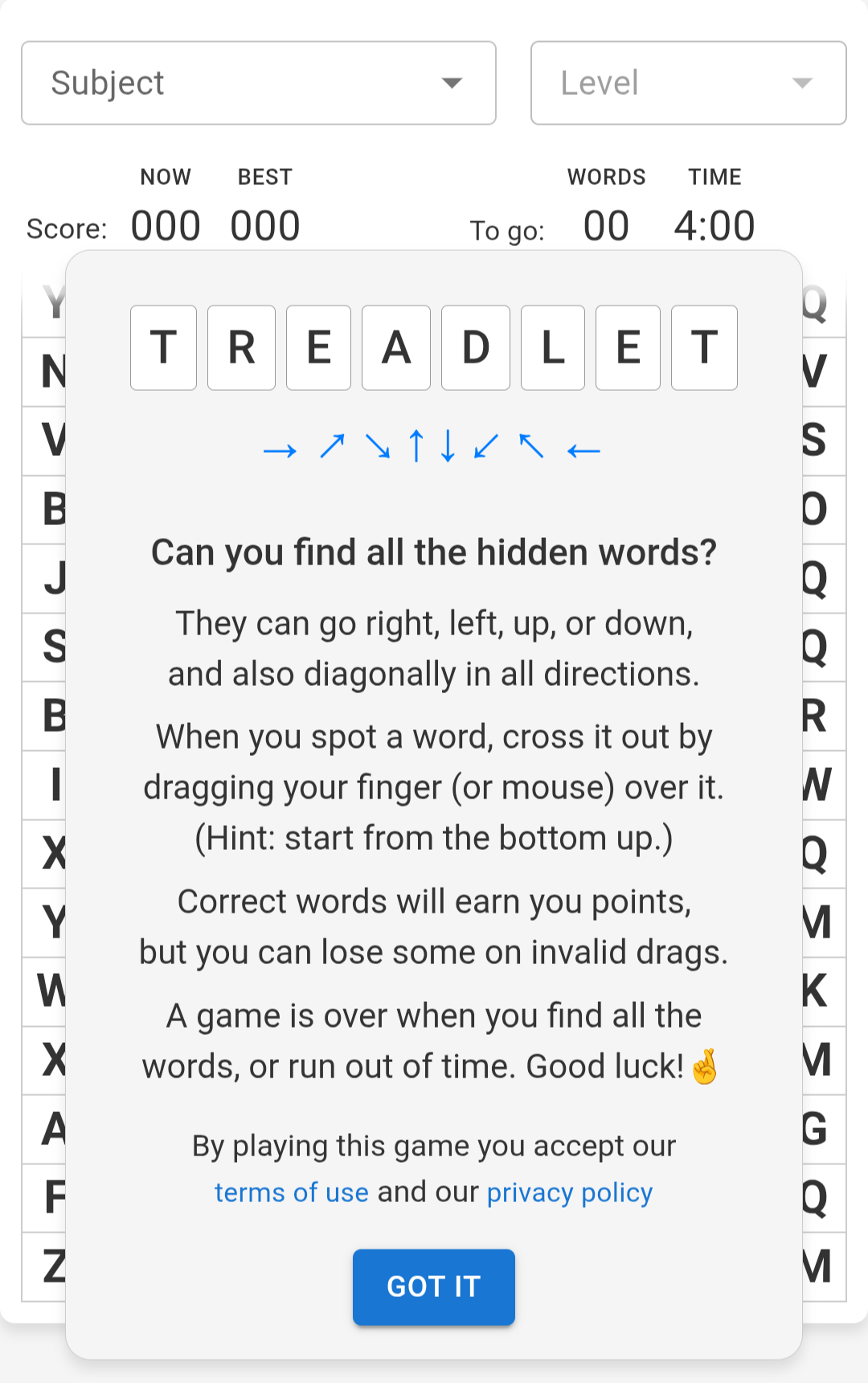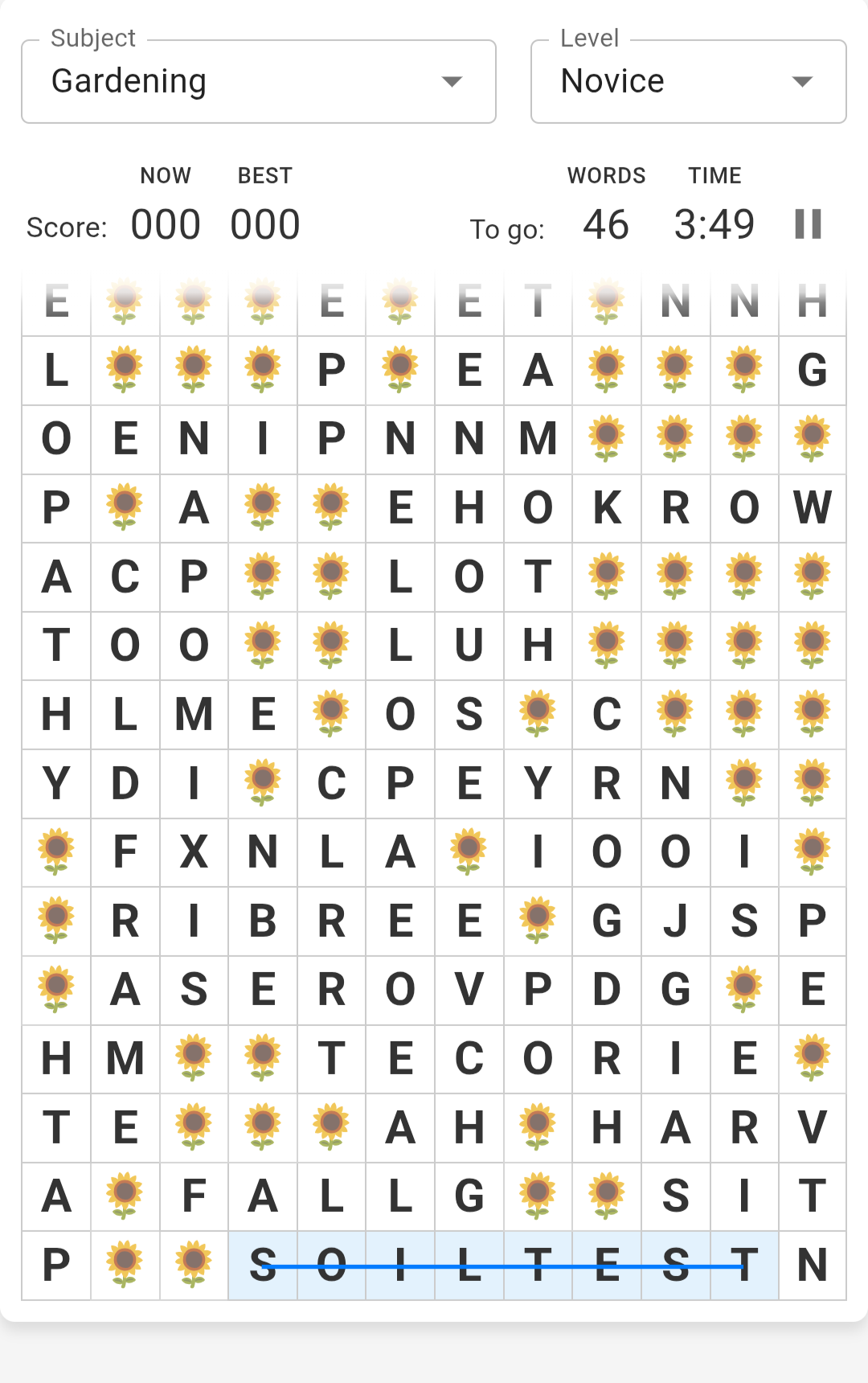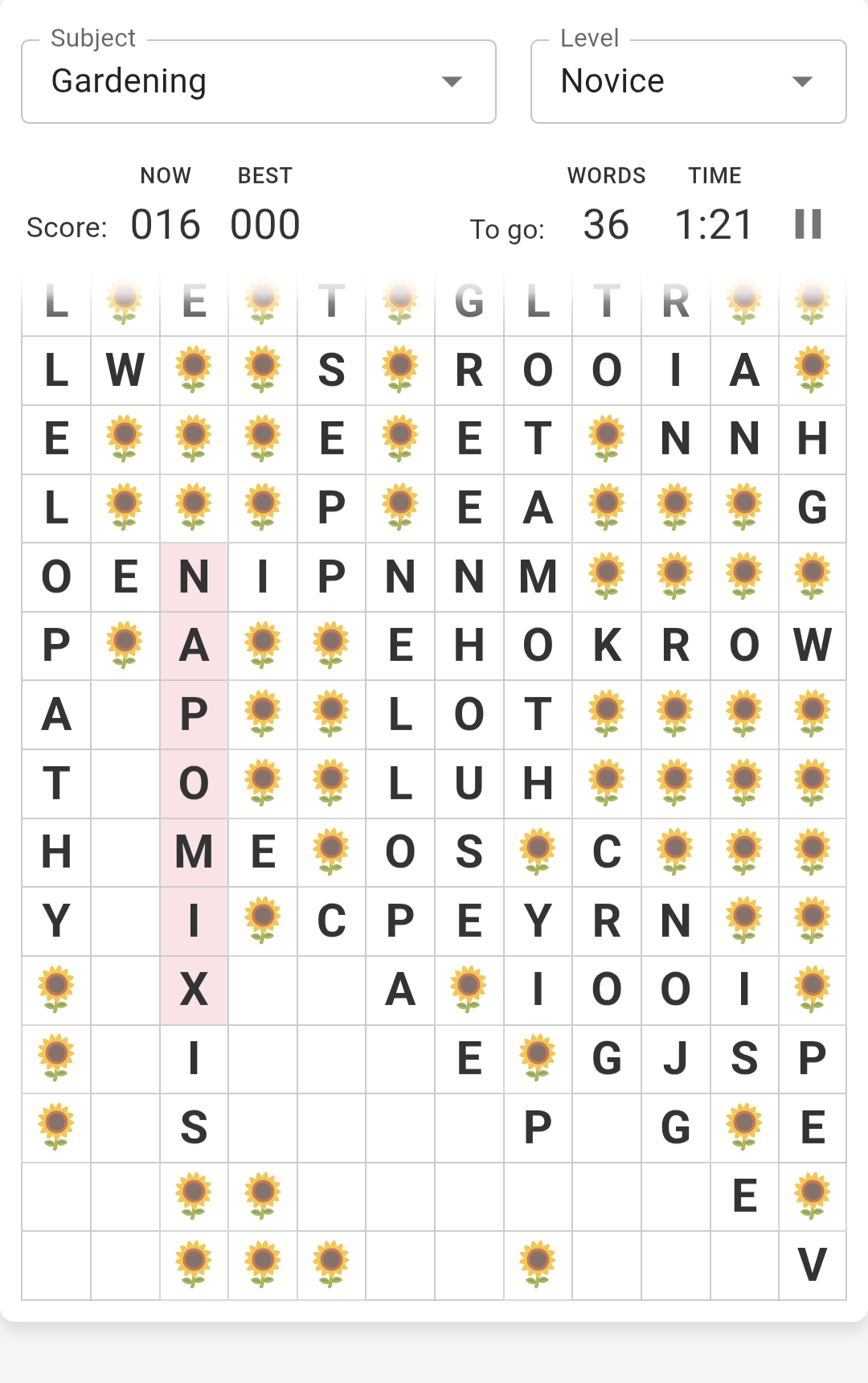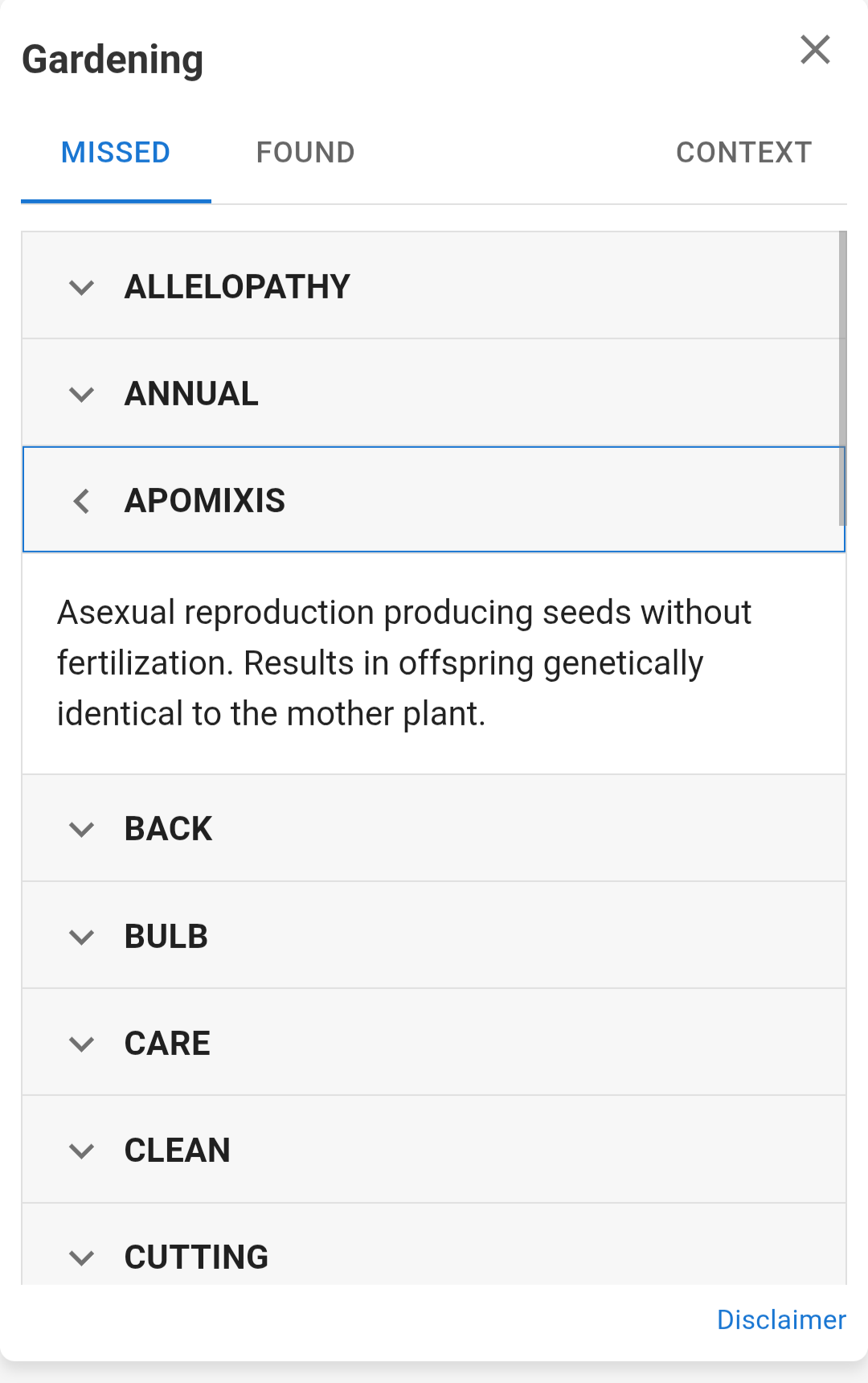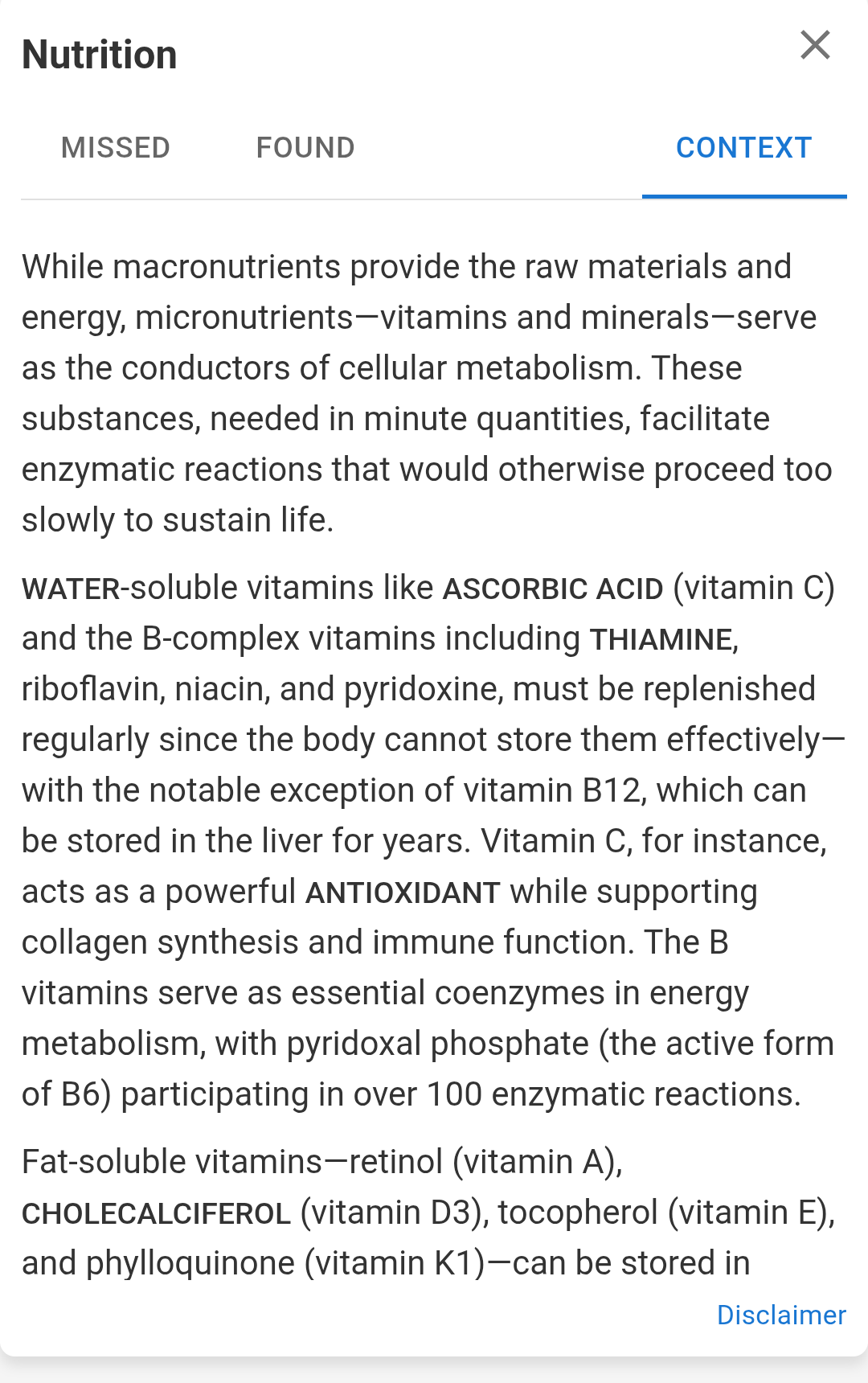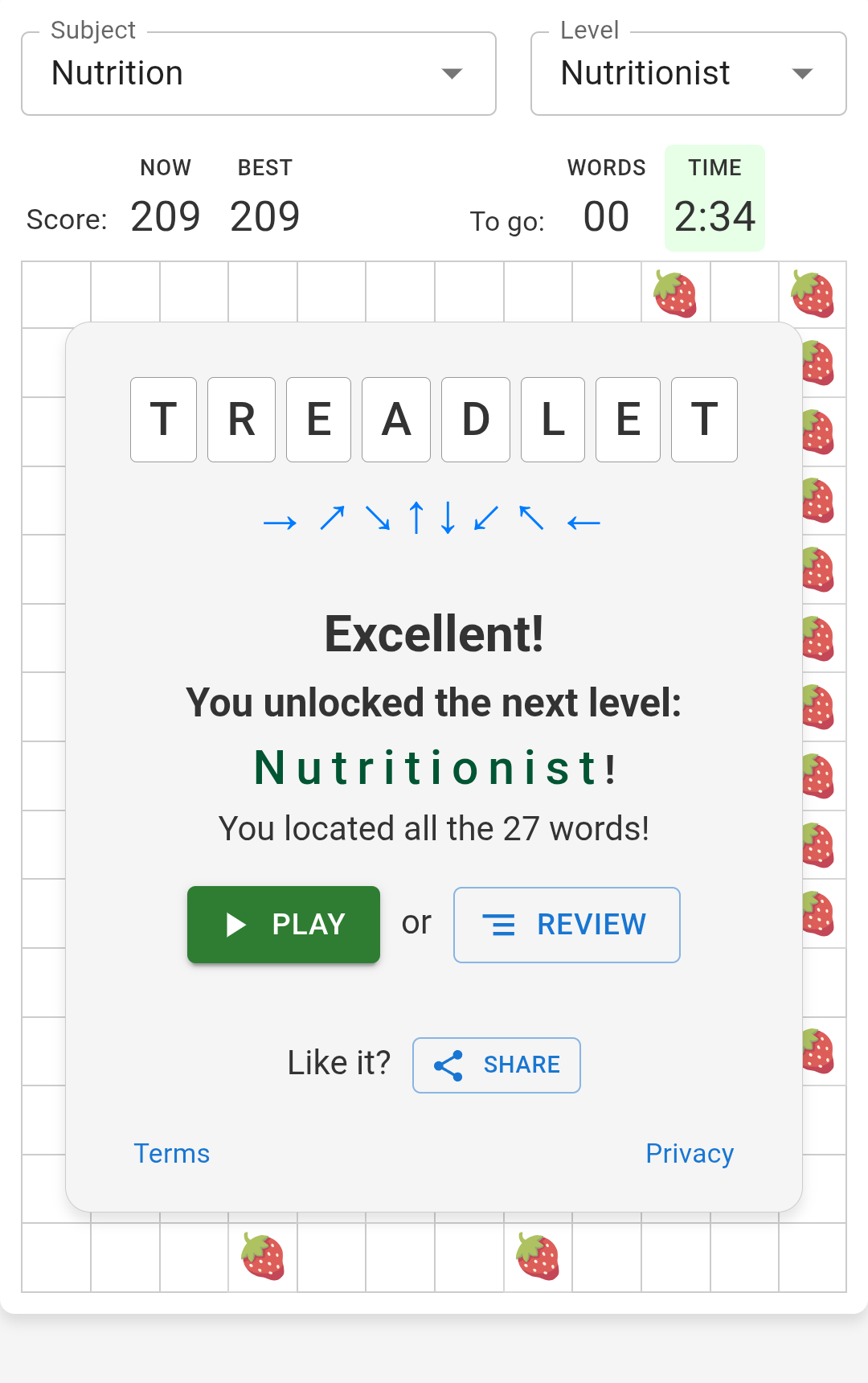Discover how a simple, fun activity like word searches can give your brain a powerful boost
Word Searches Are More Than Just a Puzzle
Word search puzzles are a great way to sharpen your mind. When you search for hidden words in a grid, you actively engage your attention, pattern recognition, and memory at the same time.
Strong Brain Benefits Backed by Research
A large-scale study from Texas A&M University found that older adults—even those with mild cognitive impairment—who regularly engaged in mentally stimulating activities, including word games and puzzles, showed better working memory, attention, and processing speed compared to those who didn't. That means staying mentally active can help slow down age-related cognitive decline. See summaries of the findings on ScienceDaily, Futurity, and an overview from Texas A&M.
Puzzles That Help Slow Cognitive Decline
Regular puzzle players often retain sharper mental skills into their later years. Word puzzles have been linked with slower cognitive decline in older adults. Even crossword fans have seen long-term benefits: some research suggests consistent crossword use is associated with a later onset of dementia. Read summaries from the Alzheimer's Drug Discovery Foundation.
How Word Search Exercises Your Brain
- Attention & pattern recognition — Scanning rows, columns, and diagonals sharpens focus and visual search.
- Memory recall — Pulling words from your vocabulary strengthens memory pathways.
- Cognitive reserve — Regular mental exercise may help build a more resilient brain—better able to compensate for age-related changes. Learn more about prevention concepts here.
Fun, Flexible, and Stress-Free
- No pressure — Go at your own pace and enjoy the process.
- Fits your day — Play while waiting in line or relaxing at home.
- Motivating — Each word you find delivers a small, satisfying win.
Tips to Get the Most from Word Searches
- Play regularly — Aim for 3–4 sessions per week (as suggested by researchers in the reports above).
- Mix up the difficulty — Increase grid complexity or word length to keep challenging your brain.
- Try new topics — Explore puzzles across different subjects—nutrition, history, music—to engage varied mental pathways.
For research news recaps, see Futurity and the Texas A&M feature.
Quick Recap
- Word searches go beyond entertainment — they're a fun, gentle way to support memory, focus, and overall brain fitness.
- Studies show benefits for older adults, including better attention and slower decline.
- Make word searches part of your routine and keep the challenge fresh to build brain fitness over time.


